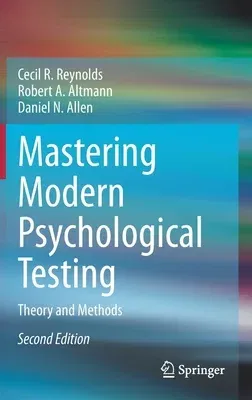This book provides a comprehensive introduction to psychological
assessment and covers areas not typically addressed in existing test and
measurements texts, such as neuropsychological assessment and the use of
tests in forensics settings. The book introduces the vocabulary of the
profession and the most basic mathematics of testing early as being
fundamental to understanding the field. Numerous examples are drawn from
tests that the authors have written or otherwise helped to develop,
reflecting the authors' deep understanding of these tests and their
familiarity with problems encountered in test development, use, and
interpretation. Following the introduction of the basic areas of
psychometrics, the book moves to areas of testing that represent various
approaches to measuring different psychological constructs (memory,
language, executive function, etc.), with emphasis on the complex issue
of cultural bias in testing. Examples of existing tests are given
throughout the book; however, this book is not designed to prepare
students to go out and administer, score, and interpret specific
psychological tests. Rather, the purpose of this book is to provide the
foundational core of knowledge about tests, measurement, and assessment
constructs, issues, and quantitative tools.
- Explains what constitutes a psychological test, how tests are
developed, how they are best used, and how to evaluate their strengths
and weaknesses;
- Describes areas of testing that represent different approaches to
measuring different psychological constructs;
- Explains applications of psychological testing to issues in the
courts;
- Addresses how test authors and publishers design and research tests to
address the difficult and demanding issues of cultural differences in
test performance and interpretation of test results.

